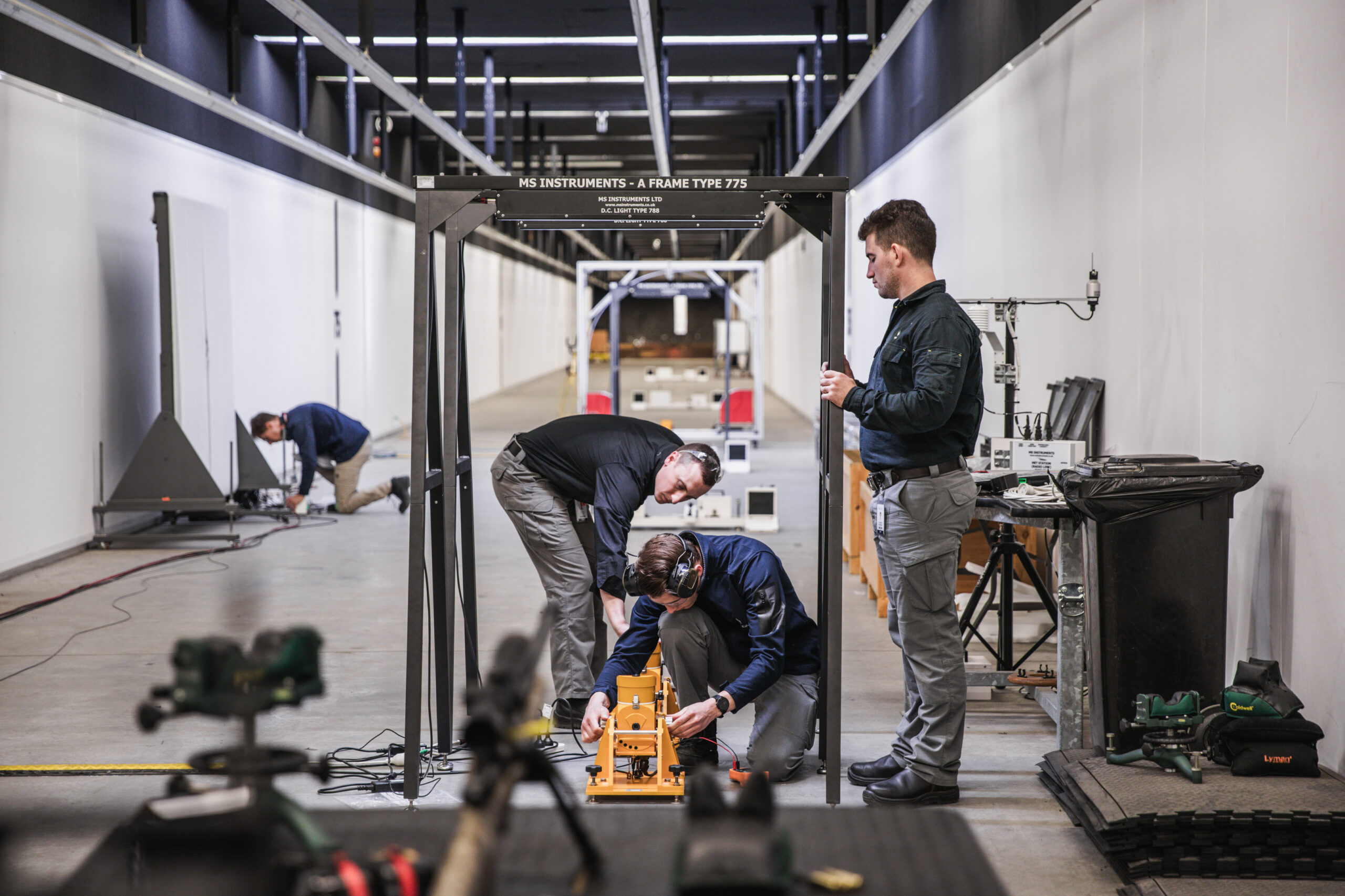ASTM E3060 Testing Flexible Ballistic Armor Materials
The ASTM E3060 standard provides a rigorous method to test the ballistic performance of flexible armor materials. This is particularly critical in sectors such as military and law enforcement, where the integrity and effectiveness of protective gear are paramount.
Flexible ballistic armor materials often face a wide range of conditions that can affect their performance. These include high-velocity impacts from various types of projectiles, exposure to environmental elements like heat, cold, and moisture, and repeated use over time. ASTM E3060 ensures that these materials meet stringent standards for protection against ballistic threats.
The test involves subjecting the armor material to a series of ballistic impacts under controlled conditions. The primary parameters include impact velocity, angle of incidence, and type of projectile used (e.g., soft-nosed bullets, high-explosive anti-tank warheads). The goal is to determine if the material can withstand these impacts without compromising its structural integrity or compromising the safety of the wearer.
The process begins with careful preparation of test samples. This involves cutting the armor material into standardized shapes and sizes that are compatible with the testing apparatus. The specimens are then mounted onto a rigid backing to simulate real-world conditions as closely as possible.
Testing is conducted using specialized equipment designed to replicate the forces exerted by ballistic impacts. Key factors include the speed at which projectiles are launched, their trajectory, and the type of energy they impart upon impact. The results are compared against predefined acceptance criteria outlined in ASTM E3060.
The outcome of the test is critical for ensuring that flexible ballistic armor materials can effectively protect personnel from potential threats. Compliance with ASTM E3060 ensures that these materials meet international standards, providing peace of mind to end-users and stakeholders alike.
| Impact Parameter | Description | Importance |
|---|---|---|
| Velocity | The speed at which the projectile is launched. | Determines the energy imparted and potential for damage. |
| Angle of Incidence | The angle at which the projectile strikes the armor. | Affects penetration resistance. |
| Type of Projectile | The nature and composition of the projectile used. | Reflects real-world threat scenarios. |
In addition to these physical parameters, ASTM E3060 also considers environmental factors such as temperature and humidity. These conditions can influence how materials perform under stress. For instance, extreme cold may cause materials to become brittle, while high temperatures could lead to softening or degradation.
The test results are meticulously documented and reported according to the standard's specifications. This documentation serves as a critical reference for manufacturers, quality managers, and compliance officers responsible for ensuring product safety and effectiveness.
Eurolab Advantages
Eurolab prides itself on delivering comprehensive and reliable testing services that meet the highest international standards. Our expertise in military testing, particularly in ballistic and armor testing, is complemented by our state-of-the-art facilities and highly skilled professionals.
- ISO/IEC 17025 accreditation ensures our tests are conducted to the most stringent quality and technical standards.
- Our experienced team of engineers and scientists provides detailed insights into test results, ensuring informed decision-making.
- We offer rapid turnaround times without compromising on accuracy or precision.
Why Choose This Test
Choosing ASTM E3060 testing for flexible ballistic armor materials is essential for several reasons. First and foremost, it provides a standardized approach that ensures consistency and comparability across different manufacturers and products.
The test helps identify potential weaknesses in the design or material composition of flexible armor. This early detection allows for improvements before the product reaches end-users, enhancing overall safety. Additionally, compliance with this standard is often required by regulatory bodies and clients, ensuring that materials meet necessary legal requirements.
By choosing ASTM E3060 testing, you also benefit from our extensive experience in military and law enforcement applications. Our team understands the unique challenges faced in these sectors and tailors each test to address specific needs effectively.
Use Cases and Application Examples
- Military Personnel Protection: Ensuring that soldiers have reliable protection against various ballistic threats is crucial. ASTM E3060 helps in developing armor that can withstand these risks.
- Law Enforcement: Officers often face unpredictable and dangerous situations, making it vital to use tested materials for their safety gear.
- Civilian Protection: In high-risk areas or during events requiring enhanced security measures, flexible ballistic armor can provide additional protection.
| Test Case | Description | Outcome |
|---|---|---|
| Military Uniform Testing | A test was conducted on a new military uniform incorporating flexible ballistic armor. | The material met all ASTM E3060 standards, ensuring the uniform's effectiveness in protecting soldiers from ballistic threats. |
| Law Enforcement Vest Evaluation | New vests were tested for their ability to withstand various types of projectiles at different velocities and angles. | All vests passed the test, confirming they could provide adequate protection under specified conditions. |





